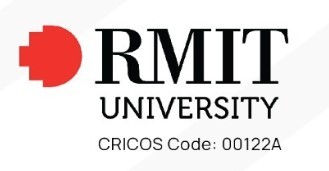
Master of Photography


Overview
Duration
FULL-TIME 2 YEARS
FULL-TIME 2 YEARS
Scholarship
YES
YES
Fee
AU$38,400
AU$38,400
Intake
FEBRUARY, JULY
FEBRUARY, JULY
Overview
- The core of the Master of Photography is image-making, and how it is used in our contemporary visual culture. We approach photography in its broadest arena and encourage you to lead the way in challenging the medium technically, conceptually and theoretically, questioning the role of this discipline today.
- During the Master of Photography you will experiment and create, research and reflect within the context of studio-based group learning and independent projects. We encourage you to explore photography through traditional, digital and expanded forms. During your studies you will develop your own projects and form your vision, propelled towards your future professional context. At RMIT we support you to decide how you want to engage with photography, creating new, meaningful work.
- Through your studies you will continuously develop your technical, research and practical skills, mastering your own process and learning from your peers. You will engage with professional development opportunities, industry leaders, guest speakers and review sessions that prepare you for presentation, publication, research or commercial markets.
- The Master of Photography inspires a dynamic and progressive attitude towards the medium. We aim to create photographers who are individual, autonomous and socially engaged, ready to lead what photography can be into the future.
Inquire Now
Career
> The Master of Photography provides you with the confidence to create your future photographic career.
> Our graduates have advanced and specialised knowledge and skills to build a successful future in photography. You will communicate and showcase your photography practice in industry arenas or further your tertiary study into a doctorate degree. Postgraduate qualifications are desirable in the global photography and associated arts industry market. Our graduates are more competitive in securing roles in museums, galleries, government institutes, education, community organisations and the private sector.
Entry requirement
- To study this course you will need to complete one of the following English proficiency tests:
- IELTS (Academic): minimum overall band of 6.5 (with no individual band below 6.0)
- TOEFL (Internet Based Test - IBT): minimum overall score of 79 (with minimum of 13 in Reading, 12 in Listening, 18 in Speaking and 21 in Writing)
- Pearson Test of English (Academic) (PTE (A)): minimum score of 58 (with no communication band less than 50)
- Cambridge English: Advanced (CAE): minimum of 176 with no less than 169 in any component.
Popular Courses
Start your journey with landmark today!
Find your perfect course
Answer a few questions and
our course matcher will do the rest
Head Office
Level 5, IT Plaza
Kamaladi, Kathmandu
Tel: +977 14542781, 9845566225
E-mail: info@landmarkedu.com
Kamaladi, Kathmandu
Tel: +977 14542781, 9845566225
E-mail: info@landmarkedu.com
Sydney office
Suite 1 Level 1,
46 Macquarie Street,
Parramatta, NSW
Tel: +61 415 122 814
46 Macquarie Street,
Parramatta, NSW
Tel: +61 415 122 814
Branch office
Sahidchowk, Chitwan
Tel: 056-590825
Tel: 056-590825
Mahendrachowk, Biratnagar
Tel: 021-590828
Tel: 021-590828
Level 2, Milanchowk, Butwal, Rupandehi
Tel: 977-71-591694
Tel: 977-71-591694
© Landmark Education. All rights reserved.


